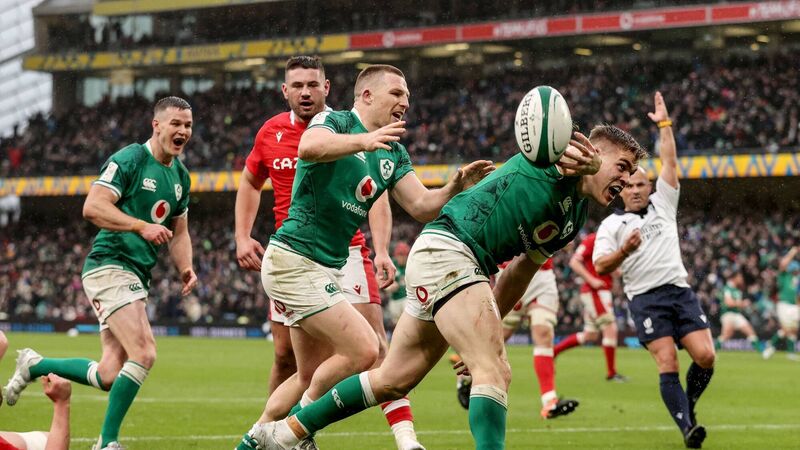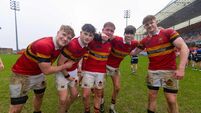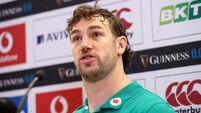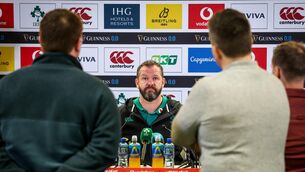Donal Lenihan: Slick Irish switch focus to Le Crunch in Paris

Ireland's Garry Ringrose celebrates scoring their fourth try with Andrew Conway. Picture: INPHO/Dan Sheridan
It says everything about the difference in quality between the old Six Nations rivals at Lansdowne Road on Saturday that, despite the 22-point winning margin, Ireland could and should have handed out a greater beating to Wales.
That said, you had to be pitchside to appreciate just how difficult conditions were at ground level, a swirling wind and intermittent rain making handling conditions very challenging. In the circumstances, the fact that Ireland stayed true to their attacking principles, looked to keep the ball alive and force a weakened Welsh side, with a number of players lacking in recent game time, into making multiple tackles paid dividends in the end.













